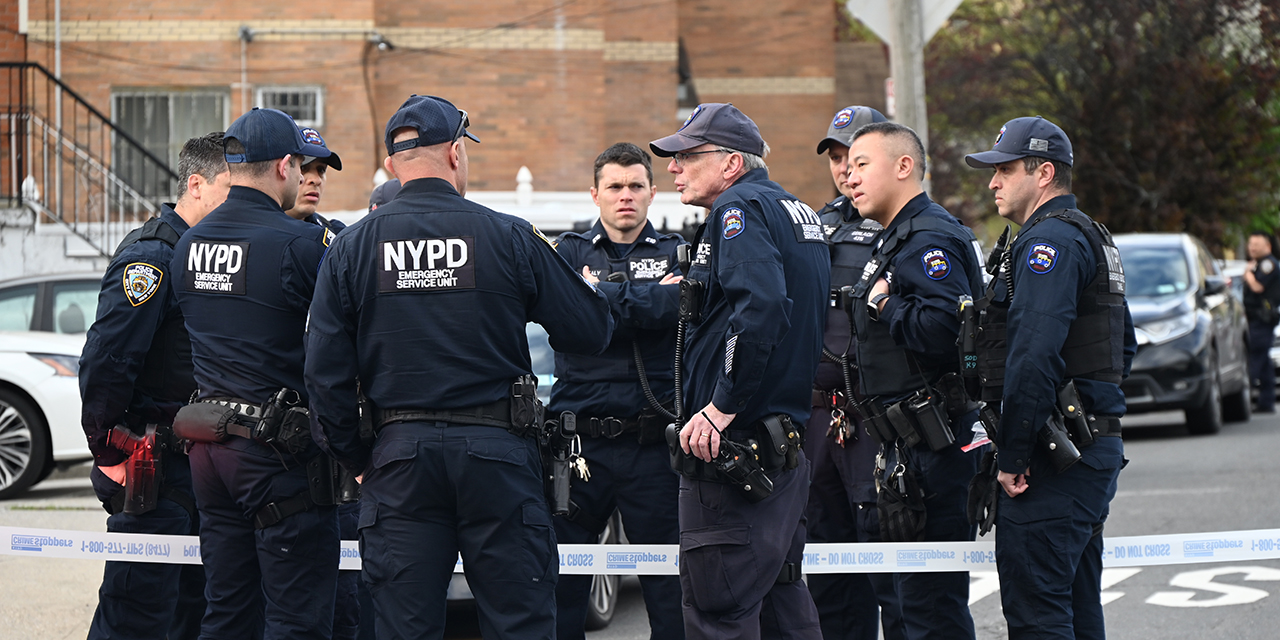On Saturday, 18-year-old Payton Gendron opened fire at a Tops Friendly Markets in the predominantly black Kingsley neighborhood of Buffalo, New York. Over the course of his ten-minute rampage, Gendron murdered ten people and injured another three; he livestreamed the massacre on the platform Twitch. The horrific incident is being investigated as a hate crime, owing in part to a manifesto in which Gendron allegedly justifies the attack as a defense of the white majority against “replacement” by blacks and Jews.
The shooting has already been absorbed into the culture war. Commentators on the left have been quick to argue that the Buffalo massacre is simply more evidence of white supremacy’s grip on the Republican Party, and on American society as a whole. Some on the right mutter about the manifesto’s stranger sections, insinuating that the whole thing is some sort of FBI conspiracy. These efforts misappropriate, or wholly obscure, the bare meaning of these murders. Our response to the Buffalo mass shooting should be that a monster committed a heinous and indefensible act, and that justice demands we hold him to final account. Try him, convict him, and put him to death.
Doing so would acknowledge the basic mandates of morality. Certain offenses are so reprehensible as to be unforgiveable. To fail to answer a vicious, hate-motivated rampage with anything but death is to deny the requirements of retribution.
Just as important, executing Gendron sends a message to those deranged few who will admire his actions: violently enacting your bigotry is intolerable to our society. As I have argued, hate-crime laws can be seen as a set of guard rails, delimiting certain criminal behavior as incompatible with shared values of civic tolerance and respect for one’s fellow citizens. When those laws are egregiously violated, capital punishment can restore the moral order that the law exists to defend.
Punishing Gendron may seem so obvious as to not be worth mentioning. But the fixation on the vulgar political significance of his atrocity reveals our collective inability to think in such stark moral terms. In particular, taking the killer as mere symbol of white America’s depravity waives his responsibility for his actions. It reinforces the therapeutic morality, undergirding most criminal-justice progressivism, that sees brutal criminals as mere products of their environment, rather than freely choosing individuals culpable for their actions. Punishment, the philosopher Herbert Morris once argued, is the way that we treat wrongdoers as fully human, by acknowledging them as morally responsible agents. The moral drama of retribution should therefore be at the center of our analysis.
Politics does play a role here. Capital punishment is, for no particularly good reason, inoperative in New York State. Several candidates for governor have already called for its return in response to the shooting; others might join them. Gendron can also be charged under federal hate-crime and homicide laws carrying a possible penalty of death, just as Emmanuel AME church shooter Dylann Roof was. But doing so would require the Biden administration to undo its death penalty moratorium. If Merrick Garland’s Department of Justice is really serious about combatting hate crimes, then it will proceed accordingly.
Outrage is a subject of much public debate these days: whose outrage is appropriate, whose is not, and when outrage ought to play a role in decision-making. In the case of horrific crimes like Saturday’s shooting, however, outrage is a natural moral emotion that points us to a just end. Only a hard heart can look upon the brutal deaths of ten people and not feel it. Putting Payton Gendron to death is simply the state’s enactment of the horror and revulsion that so many feel. Failing to do so would be a rejection of public moral sense and decency.
Photo by Libby March for The Washington Post via Getty Images





